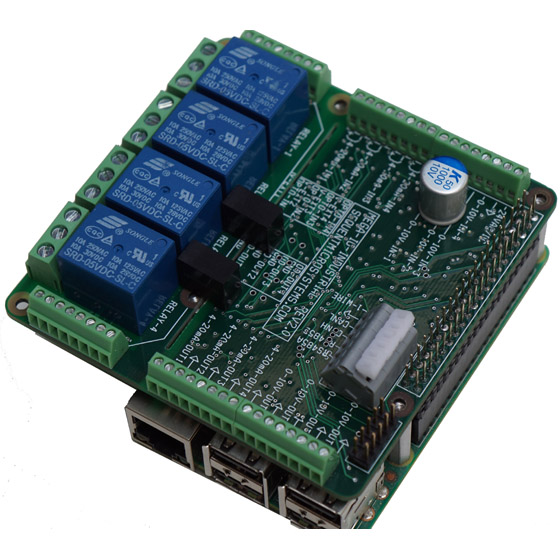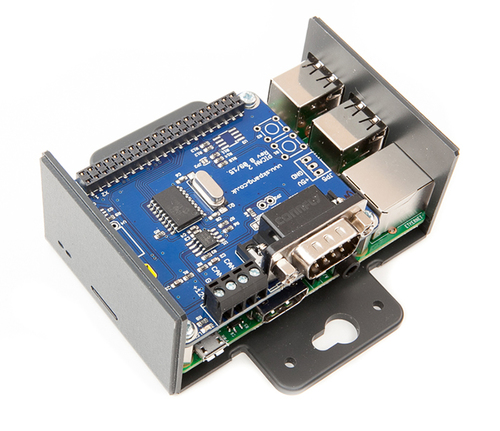Recent Posts
Industrial Expansion Card for Raspberry Pi With Multiple IO And CoDeSys Driver
Posted by on
Sequent Microsystems, a tech startup from Cupertino in California, introduced a Kickstarter campaign for a new industrial expansion card for the Raspberry Pi platform. Loaded with multiple inputs, outputs, the card is designed for the Industrial Automation market. According to the KS page, the card attempts to integrate as many Industrial Automation functions as possible into the format of the Raspberry Pi.
Shipment of these cards is expected to take place by January 2019.
The MegaIO-IND card features Optically Isolated 4-20mA Inputs and Outputs, 0-10V Inputs and Outputs, Optically Isolated Digital Inputs and Open Drain Outputs, Optically and Galvanically Isolated 10A/250V Relays with status LED's, Standard Communication Ports, Configurable Interrupts and a Real Time Clock with Battery Backup.
The MegaIO-IND can be ordered with screw-type terminal blocks, as shown in the picture below, or upgraded for a small extra charge to pluggable connectors. Pluggable connectors offer a way of removing the cards after field installation, for repairs or upgrades.
Features
- Four Optically Isolated 4-20mA Inputs
- Four 4-20mA Outputs
- Four 0-10V Inputs
- Four 0-10V Outputs
- Four Optically Isolated Digital Inputs
- Four Optically Isolated Open Drain Outputs
- Four Optically Isolated 10A/250V Relays
- Four Relay LED's
- Four General Purpose LED's
- RS485, CAN, 1 Wire communication
- Real Time Clock with Battery Backup
- Configurable Interrupts
Raspberry Pi 3 System With CAN Bus Interface
Our Raspberry Pi 3 System With CAN Bus Interface (PiCAN2) comes with a pre-installed Raspbian operating system. The system is equipped with a PiCAN2 board, depending on the selected option, with or without SMPS (Switch Mode Power Supply).
The included PiCAN2 board provides Controller Area Network (CAN) Bus capabilities for the Raspberry Pi. It uses the Microchip MCP2515 CAN controller with MCP2551 CAN transceiver. Connection are made via DB9 or 3-way screw terminal.
There is an easy-to-install SocketCAN driver, and programming can be accomplished in C or Python.
The Switch mode power supply (SMPS) option allows connecting an input voltage range of 6 VDC to 30 VDC suitable for industrial and automotive applications and environments.
 Loading... Please wait...
Loading... Please wait...


